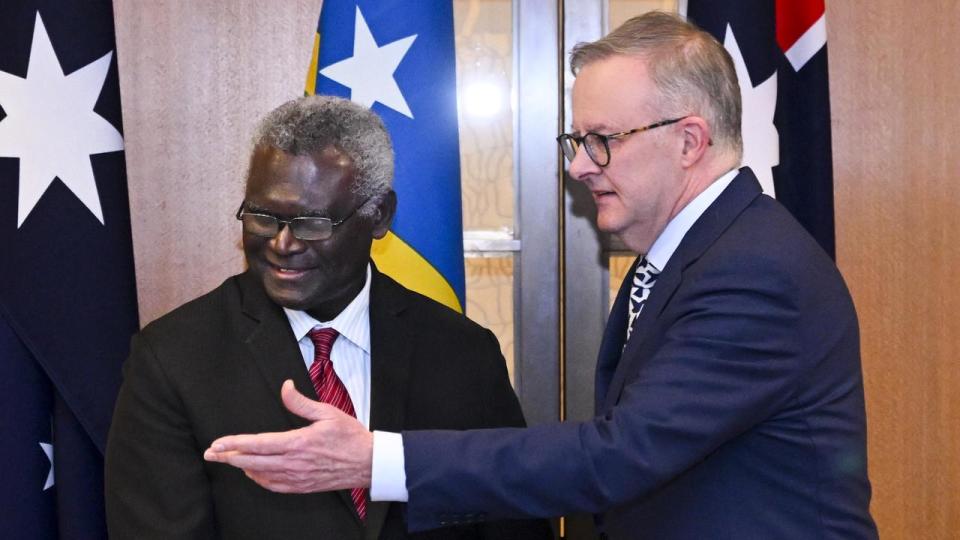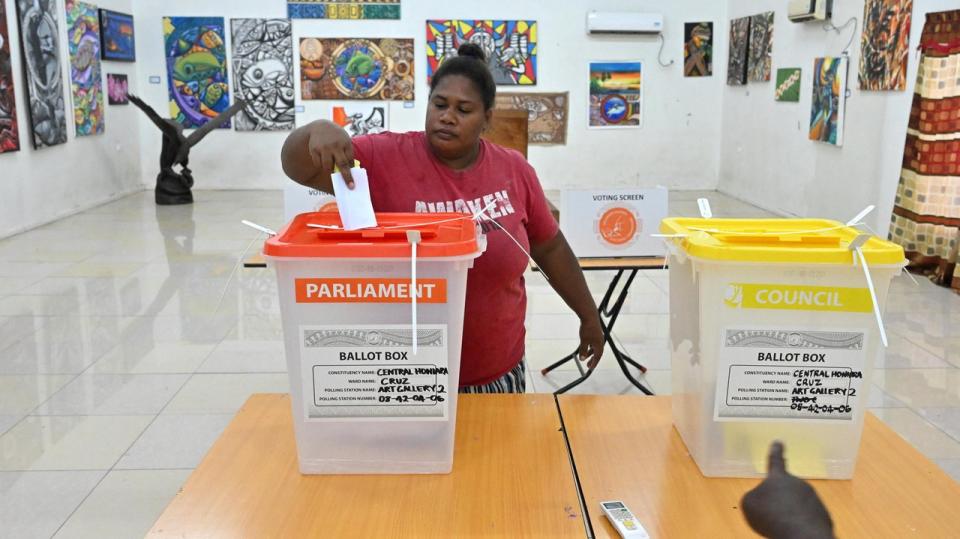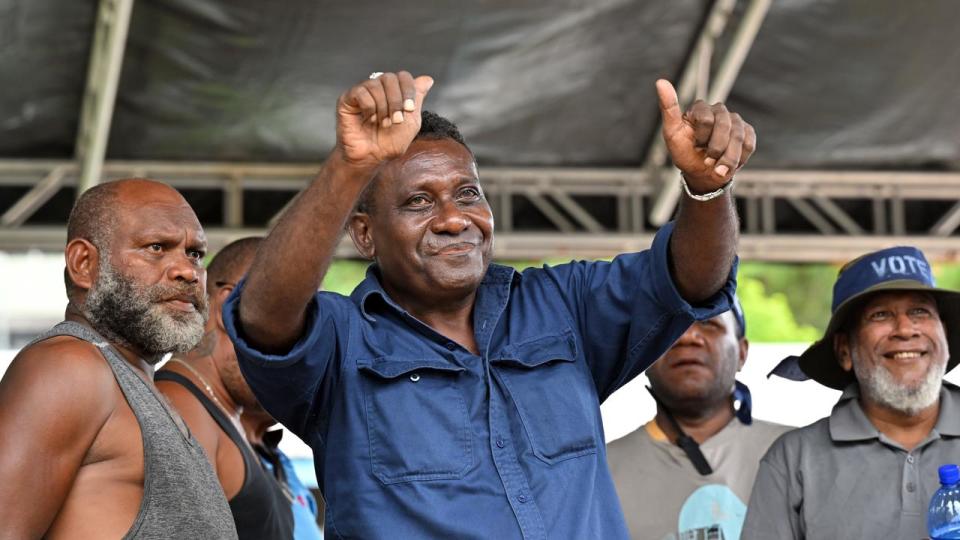Polls close in closely watched Solomon Islands election
Polling has closed across the Solomon Islands in an election set to determine the future of the Pacific nation's new relationship with China.
Prime Minister Manasseh Sogavare, regarded for his political acumen but criticised for backsliding on democracy, has asked voters to back his economic plans against a backdrop of closer ties with China.
Recognition of Beijing in 2019 prompted infrastructure development, partly motivated major riots and led to a contentious security pact that has spooked US allies.
The developing nation of almost 1000 tropical islands is strategically placed northeast of Australia and provides a link between Asia and the South Pacific.
Opposition figures have campaigned on re-examining or tearing up elements of the Chinese relationship.

The economy, health and even familial links also weighed on voters' minds on Wednesday as they cast ballots for the 50 seats in national parliament.
For the first time, the national vote also coincides with elections for eight of the 10 local governments.
Esther Maeluma cast her vote in the National Art Gallery and said it seemed busier than the previous national election in 2019.
"I want my country and the economy to be good and that's why I chose my candidate," she told AAP outside the polling station.
Some voters queued outside polling stations from 4am, with many more flocking to booths early after seeing the growing crowds on local news outlets.
With early voting open to a select few, voters have spent recent days travelling back to home electorates, quietening the capital Honiara and forcing the nation's main hospital to enter crisis mode due to a lack of staff.

"I didn't used to vote but now I can see that maybe my vote can change the system and the country," hospital worker Loretta Maeohu told AAP.
More than 1000 polling stations are scattered across schools, churches and villages across the island nation of about 740,000 people.
Some were visited by roaming groups of international observers including from Australia and the European Union.
One observer said she was also keenly watching from the sidelines an untold story of Solomons' democracy: female election officials in integral roles.
Just 21 of the 334 candidates running for national parliament are women, leaving most ballots all male.
"It's hard for women to get elected but women make elections happen," University of Queensland Associate Professor Nicole George told AAP.

Mr Sogavare is in his fourth stint in top office but is only the second prime minister in the Solomons' volatile 46-year political history to see out a full term.
He has pointed to China's gift of a $A100 million sporting complex and similarly-sized loan to build a Huawei-led national broadband network as examples of why closer ties with Beijing deal is right for the developing country.
A swathe of political figures are coming for him however, including two past prime ministers Gordon Darcy Lilo and Rick Houenipwela.
Loyalties to candidates through blood or church can also influence ballots, while the illegal practice of vote-buying is known to occur.
"Votes are impacted by so many matters," Dr Anouk Ride, a research fellow at Australian National University's Pacific Affairs department, told AAP last week.
Local police supported by colleagues from Australia, Papua New Guinea and Australia have been visible on the streets and in polling stations.

They earlier warned they were prepared to quickly respond to any potential repeat of politically motivated disorder that has broken out after past elections.
An anti-government riot also devastated Honiara in 2021, denting the national economy by 6.5 per cent.
"National and provincial politics can be very volatile," Solomons historian, Emeritus Professor Clive Moore told AAP on Tuesday.
"The police need to handle the situation carefully."
Allies have provided other election support including $A25 million from Australia.
Counting is due to begin on Thursday with results not expected for many days.
Intense negotiations between MPs-elect will then take place in Honiara to form the next coalition government, unless Mr Sogavare's party can win an unprecedented majority.
This article was made possible through the Melbourne Press Club's Michael Gordon Journalism Fellowship Program.


